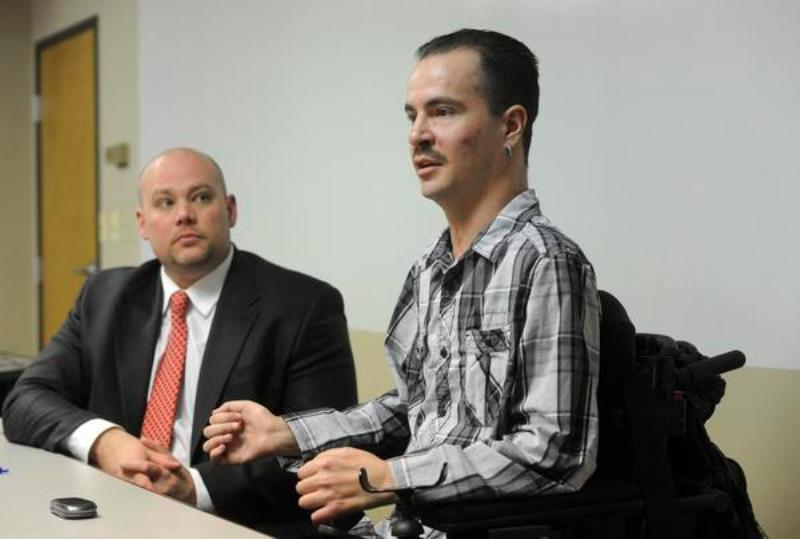
In March of last a year, Brandon Coats, a quadriplegic man, was fired from Dish Network for testing positive for marijuana. Coats used medical marijuana within the confines of his home to control muscle spasms associated with injuries he sustained in car crash.
Upon being fired, he filed a lawsuit for wrongful termination citing his use was legal under Colorado state law.
In what is being called a landmark decision, the Colorado Supreme Court ruled on Monday morning that Coats’ off-duty medical marijuana use was not protected under the state’s “lawful activities statute.”
“Although I’m very disappointed today,” he told The Huffington Post, “I hope that my case has brought the issue of use of medical marijuana and employment to light. If we’re making marijuana legal for medical purposes we need to address issues that come along with it such as employment. Hopefully views on medical marijuana—like the ones in my specific case—will change soon.”
The case centered around the grey area between state and federal law regarding the usage of marijuana, which is legal in Colorado while federally still illegal. “The Supreme Court holds that under … Colorado’s ‘lawful activities statute,’ the term ‘lawful’ refers only to those activities that are lawful under both state and federal law,” the Colorado court ruled.
“Therefore, employees who engage in an activity such as medical marijuana use that is permitted by state law but unlawful under federal law are not protected by the statute,” wrote Justice Allison H. Eid.
Despite the fact that Coats was a top performer in the workplace, he violated Dish Network’s policy on drug use. Dish Network attorney Meghan Martinez argued last year that whether or not Coats was ever high on the job was not the issue. What was at stake was the “use” itself, which Martinez argued as simply having THC in one’s system.
Michael Evans, Coats’ attorney, said at least now things are spelled out as, “There was previously no clear definition on what an employer and employee could do when it came to [medical marijuana].”
Evans also mentioned that the court issued its decision after the state’s legislative session was over, which indicates that it could have been waiting for the state Senate or House to fill the “obvious” hole with the law.
In Coats’ statement to The Huffington Post, he said, “Today’s decision means that until someone in the House or Senate champions the cause, most employees who work in a state with the world’s most powerful medical marijuana laws will have to choose between using medical marijuana and work.”